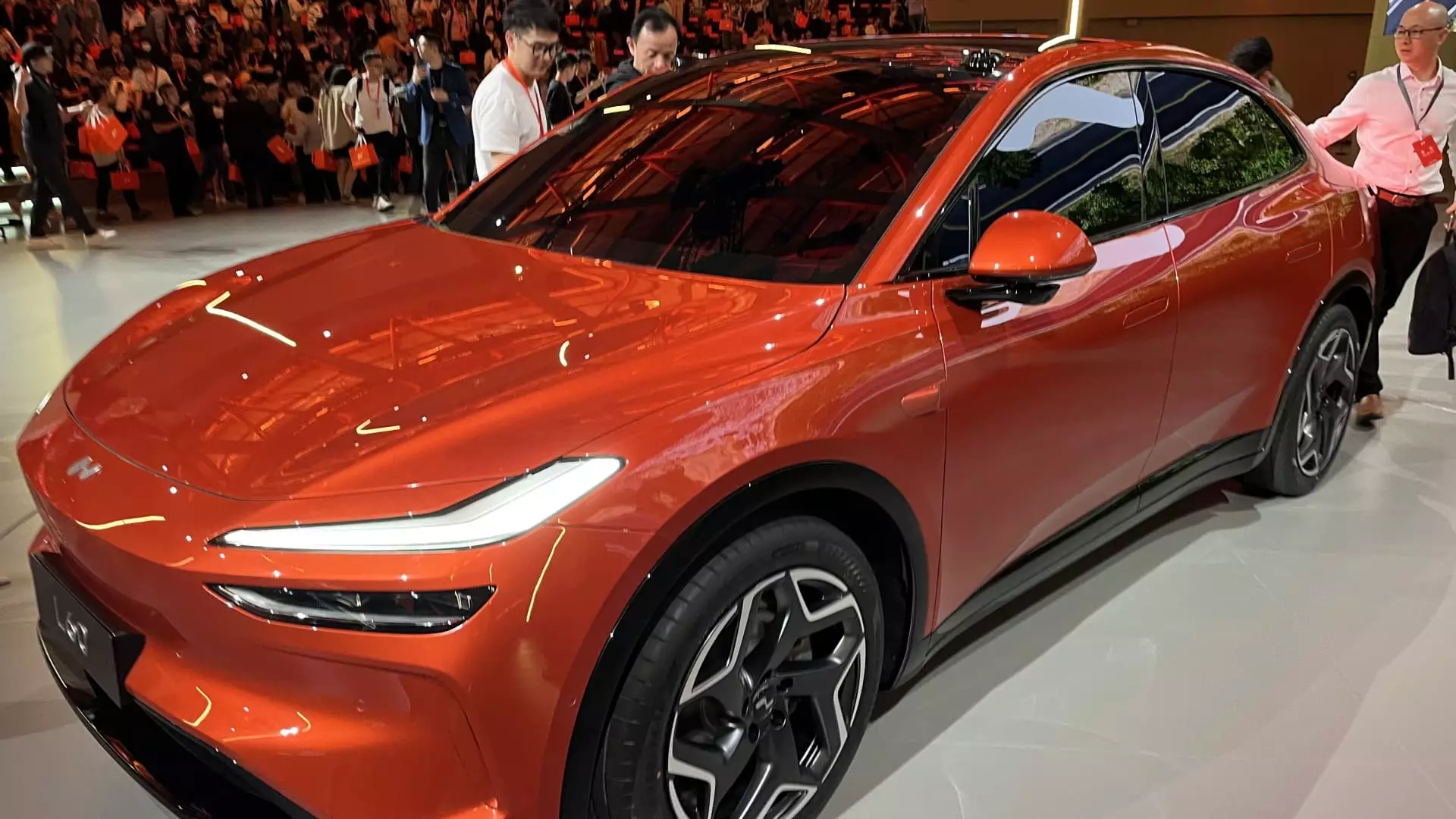In the fiercely competitive electric vehicle (EV) market, Chinese automaker Nio has made a strategic pivot with the launch of its affordable brand, Onvo. The debut of the Onvo L60 SUV, priced at an astonishing 149,900 yuan (approximately $21,210), marks a significant move to attract consumers who are increasingly price-sensitive. By offering a unique battery subscription model at a starting fee of 599 yuan per month, Nio aims to differentiate Onvo from other contenders, including established names like Tesla and emerging rivals such as Xpeng and Geely’s Zeekr. The concept of “renting” batteries offers a budget-friendly alternative for potential buyers, minimizing the upfront investment in one of the priciest components of electric vehicles.
The Onvo L60 is not merely an affordable option; its pricing strategy reflects a calculated effort by Nio to undercut Tesla’s Model Y, which retails at 249,900 yuan. When Nio first introduced the Onvo brand, it signaled a commitment to disrupt the prevailing market dynamics in the premium electric SUV segment. This aggressive pricing strategy, accompanied by substantial discounts, demonstrates Nio’s intent to capture a market share hampered by high competition and consumer hesitance in the face of rising EV prices.
In the larger context of the EV market, Onvo is not alone in its quest for cost leadership. Xpeng’s recent announcement regarding its mass market brand, Mona, launching the M03 coupe at a starting price of 119,800 yuan, similarly underscores the trend towards more accessible electric vehicles. Indeed, as more Chinese companies leap into the fray with competitive pricing, the landscape is shifting toward a buyer’s market where cost is increasingly becoming the determining factor in consumer decision-making.
Despite the attractive pricing model for the L60, Nio is acutely aware of the challenges posed by international expansion. With tariffs on imported Chinese-made electric vehicles set to rise in the European Union, as investigations into subsidies continue, Nio faces potential hurdles in its ambition to export. The company is bracing for a 20.8% duty on its vehicles entering the EU, which could significantly affect pricing and competitiveness in that lucrative market.
CEO William Li has articulated a cautious yet committed approach to international expansion. He envisions that Nio will eventually establish itself in the five existing European markets it has already entered, while recognizing that building a premium brand in Europe is a long-term endeavor. The recent opening of Nio’s flagship showroom, known as the “NIO House” in Amsterdam, reflects the company’s ongoing commitment to solidify its presence in Europe despite the emerging challenges.
Internally, Nio aims for ambitious targets, expecting to deliver 10,000 L60 units per month by December and potentially ramping up to 20,000 monthly deliveries by the following year. The predicted profit margin of 15% on these vehicles reveals a balance between aggressive pricing and maintaining profitability—a challenge in the highly competitive EV sector.
The Onvo and its future sister brand, Firefly, which is set to launch next year, underline Nio’s strategy to diversify its offerings. This diversification is not only intended to cater to various consumer segments within China but also to position Nio favorably against both domestic competitors and foreign entrants. The anticipated rollout of over 200 stores within China by the end of the year serves to enhance brand visibility and customer engagement.
The launch of the Onvo L60 not only emphasizes the intense price competitiveness in the Chinese electric vehicle market, but it also highlights the broader issue of how South American car companies are adjusting their strategies in response to evolving consumer preferences and regulatory landscapes. As the EV market undergoes rapid transformation, marked by aggressive pricing, continuous innovation, and shifting consumer expectations, companies like Nio are poised to play a significant role in shaping the future of electric mobility. With both opportunities and challenges ahead, Nio’s proactive measures signal its determination to thrive in the evolving landscape of electric vehicles.


Leave a Reply